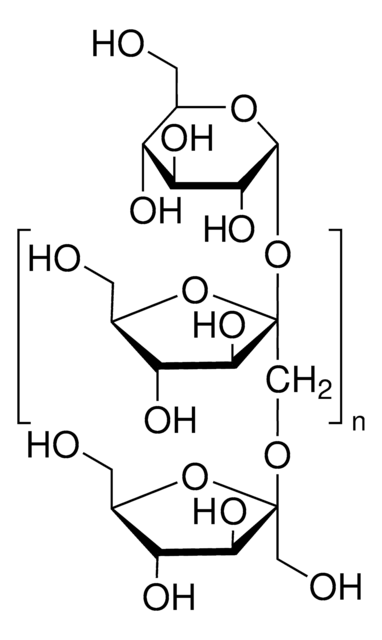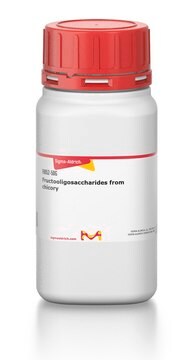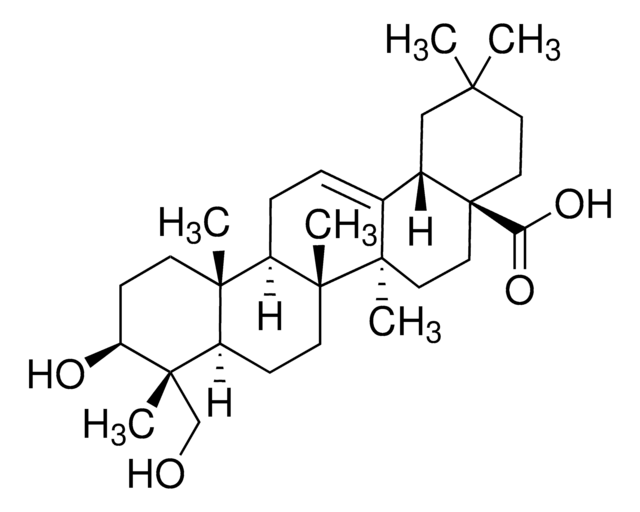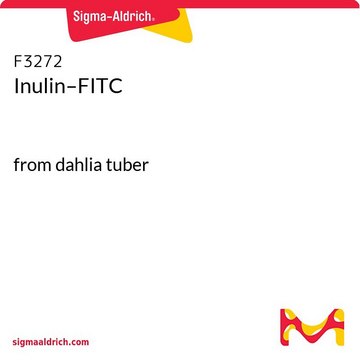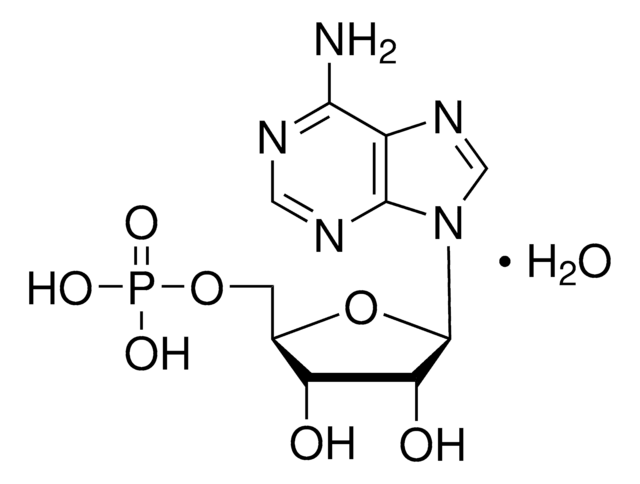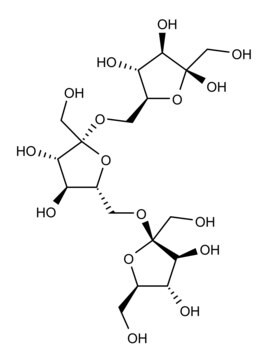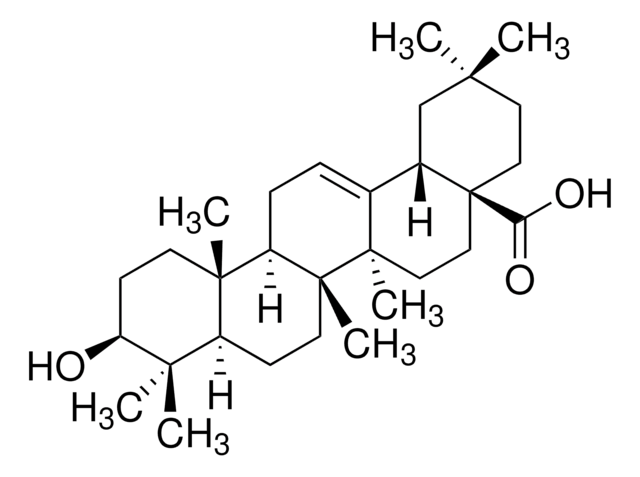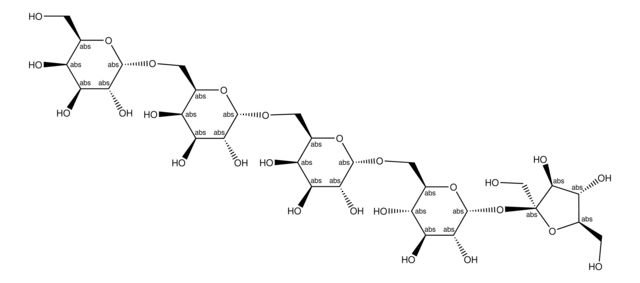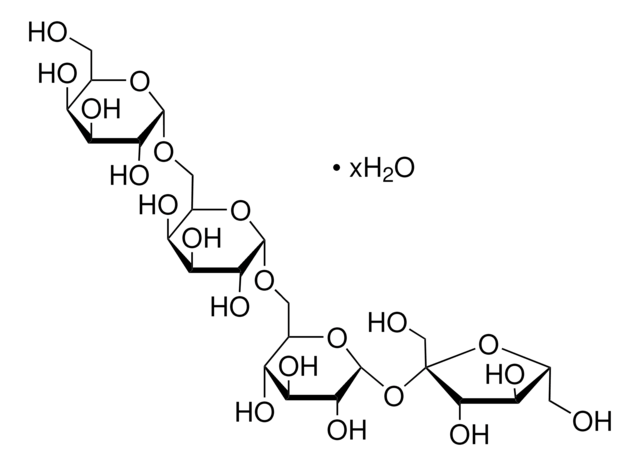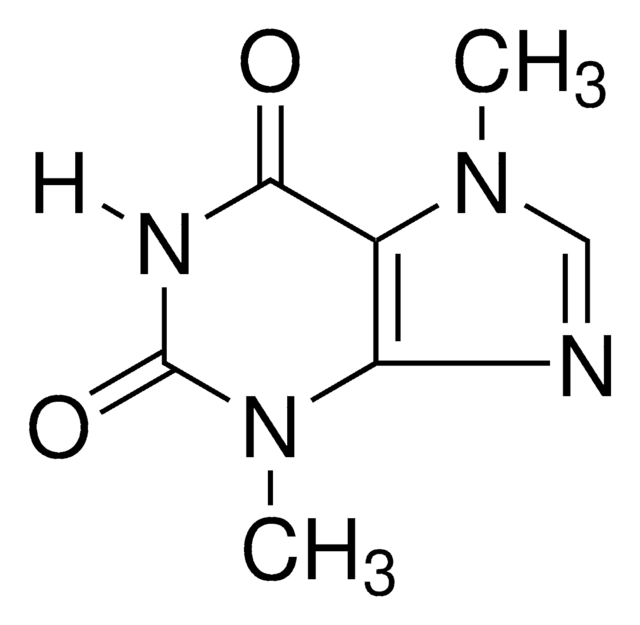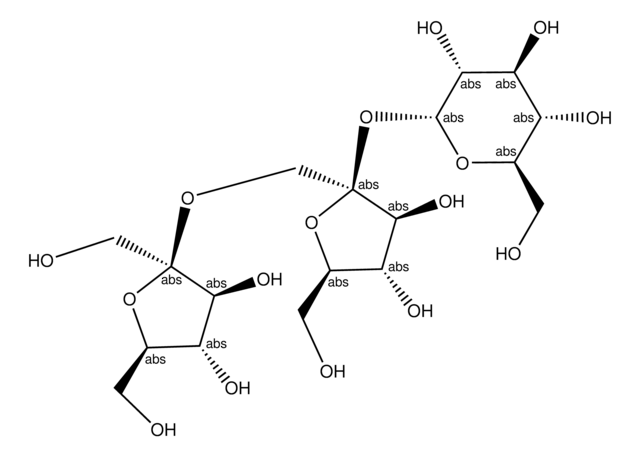About This Item
Recommended Products
biological source
dahlia tuber
Quality Level
form
powder
mol wt
Mr ~5000
color
white
mp
158 to 165 °C
solubility
water: 100 mg/mL, clear to hazy, colorless
SMILES string
OC[C@H]1O[C@](O)(CO)[C@@H](O)[C@@H]1O.OC[C@H]2OC(O[C@]3(CO)O[C@H](CO)[C@@H](O)[C@@H]3O)[C@H](O)[C@@H](O)[C@@H]2O
InChI
1S/C12H22O11.C6H12O6/c13-1-4-6(16)8(18)9(19)11(21-4)23-12(3-15)10(20)7(17)5(2-14)22-12;7-1-3-4(9)5(10)6(11,2-8)12-3/h4-11,13-20H,1-3H2;3-5,7-11H,1-2H2/t4-,5-,6-,7-,8+,9-,10+,11?,12+;3-,4-,5+,6-/m11/s1
InChI key
TUULCWHRUVPVEB-UGWHTDGHSA-N
Looking for similar products? Visit Product Comparison Guide
Other Notes
Storage Class Code
11 - Combustible Solids
WGK
WGK 3
Flash Point(F)
Not applicable
Flash Point(C)
Not applicable
Personal Protective Equipment
Choose from one of the most recent versions:
Already Own This Product?
Find documentation for the products that you have recently purchased in the Document Library.
Customers Also Viewed
Our team of scientists has experience in all areas of research including Life Science, Material Science, Chemical Synthesis, Chromatography, Analytical and many others.
Contact Technical Service